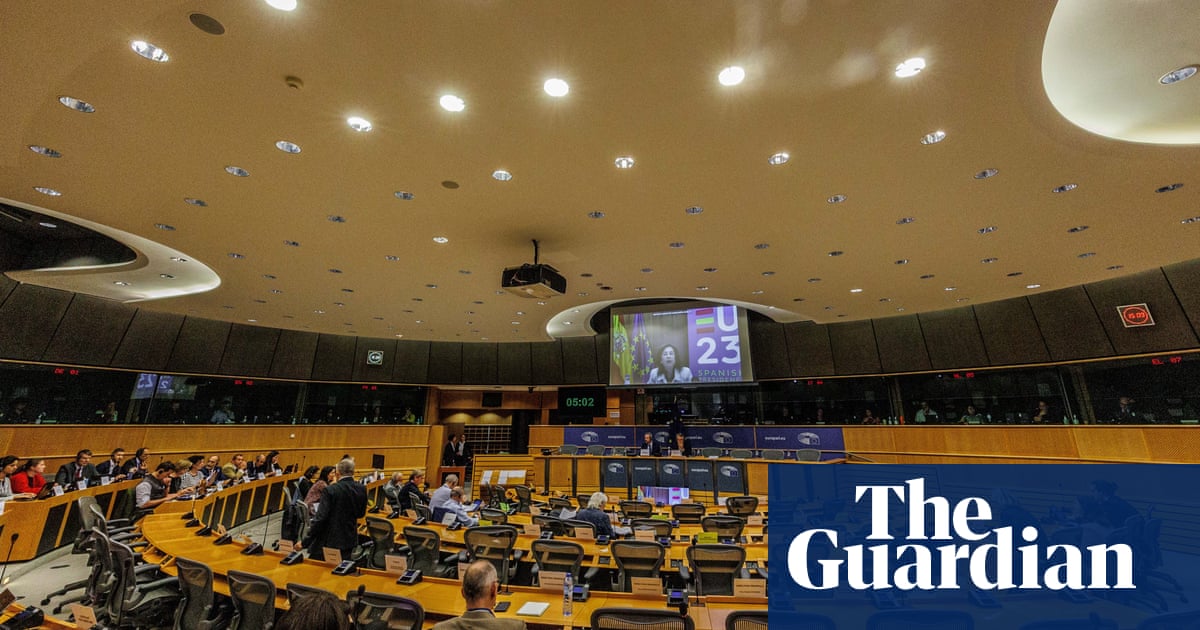
A vision of a future EU with four types of membership – including an “EU lite” for countries such as the UK – has been tabled by a group of academics commissioned by France and Germany to consider future reforms.
The proposal comes as the UK’s opposition leader, Keir Starmer, told France’s president, Emmanuel Macron, that he wanted to build an “even stronger” relationship between the two countries if he wins power at a national election pencilled in for next year.
With the Ukraine war accelerating the appetite for enlargement, the EU leadership has acknowledged the urgent need to start thinking about the shape of the bloc, which could increase from 27 members to as many as 36 countries.
A report presented by France and Germany on Tuesday called on EU institutions to pass a raft of reforms to be ready by 2030 to accept new members such as Ukraine.
Experts from the two European heavyweights drew up the proposals aimed at streamlining the way the bloc works, as Brussels considers its biggest wave of expansion in decades.
The report does not represent the official German or French positions, but will feed into debates at an upcoming summits of 46 European countries and an informal gathering of the 27 EU leaders on successive days in October in Granada in Spain.
“It is clear the enlargement of the EU is in all our interests,” said Germany’s Europe minister, Anna Lührmann, who presented the report in Brussels with her French counterpart.
“We must therefore start now to do everything possible to ensure that the EU is ready for this enlargement.”
The working group of 12 academics and lawyers were commissioned to conduct a blue-sky thinking exercise on a future Europe.
One suggestion is to offer different grades of membership, including an inner circle of countries with “deep integration in areas like the Eurozone and Schengen area”.
The next concentric circle would consist of the current EU, with a third circle of “associate members” who participate in the single market, which could include the likes of Norway, which is in the European Economic Area with access to the trading bloc.
The fourth circle could be a space for countries such as the UK and would involve “political cooperation without having to be bound to EU law”.
The 46 European leaders meeting in Spain next month are already part of the fledgling European Political Community, which includes the UK and other non-EU members such as Iceland, Serbia, Kosovo, Georgia and Moldova.
Other reforms mooted include a change from unanimous to qualified majority voting on key areas such as taxation, finances and foreign affairs in favour of a qualified majority, they said.
This would require changes to European treaties and referendums in some countries.
“Governments have acknowledged that further enlargement without proper institutional reforms would make it even harder – if not impossible – for the EU to take decisions,” the report said.
The experts recommend potential opt-outs that would allow countries’ wary of using their veto powers not to go along with decisions they oppose.
The report also envisions trimming Brussels’ notorious bureaucracy by cutting the number of commissioners put forward by member states in the EU’s executive.
If some member states do not want to go along with changing the EU’s treaties, then the experts said a “coalition of the willing” could push on with reforms in a new “inner circle” of countries.
Lührmann said the report had received a “very positive” welcome at a meeting of EU European affairs ministers held on Tuesday in Brussels.
But Spanish minister Pascual Navarro, who was at the meeting, said the talks had shown how far apart member states were on key issues.












